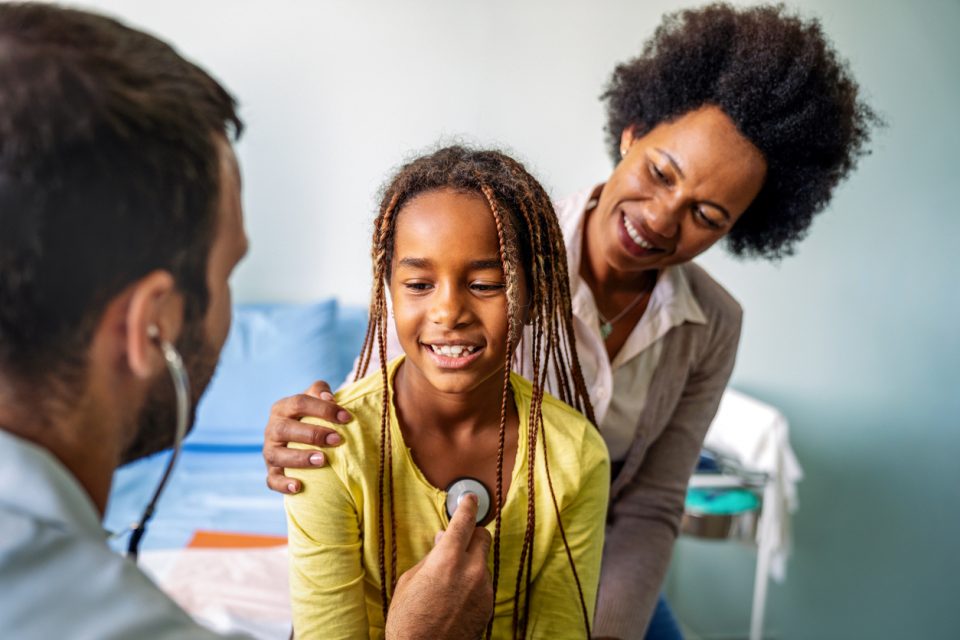By Tanni Haas, Ph.D. | Contributor
August is National Wellness Month, a great occasion to consider what you can do to help prepare your kids for visits to the pediatrician. It’s no exaggeration to say that a trip to the pediatrician is rarely high on kids’ wish lists. Whether it’s their annual wellness check-up or they’re feeling sick, chances are that the pediatrician will give them shots, a physical exam, or otherwise perform tests that are not fun. Nevertheless, there’s a lot that parents can do help relieve the stress that kids may feel before a trip to the pediatrician. Here’s what the experts suggest:
Tell Them In Advance
Tell your kids that you’ll be taking them to the pediatrician, but don’t give them too much advance notice; experts agree that two days before an appointment is enough. “Letting your child know they have a doctor’s appointment coming up a couple days in advance,” says registered nurse Marsha Durkin, “can help lessen their anxiety about it.” If you give them too much time to think about it, they may get the sense that it’s a much bigger deal than it really is and worry.
Explain What Will Happen
Explain to them what will happen during the visit. “Provide specific details of what your child will see and do at the doctor’s office,” says family therapist Raffi Bilek, “to help them orient themselves when they get there.” Ms. Durkin agrees. “Giving your child as much information about their upcoming doctor’s appointment as possible,” she says “will be most helpful in easing any fears or worries they might have.” She suggests that parents describe the waiting room and the exam room, as well as the equipment the doctor will use and how it will feel. It’s also really important, she says, to let them know that some of the instruments the doctor uses may feel strange: the blood pressure cuff may feel tight and the stethoscope may feel cold.
Prepare you tweens and teens for the fact that the pediatrician may spend part of their annual wellness check-ups discussing developmental issues with them in private without you in the room. When you do that, stress the importance of being and open. “Remind them that the doctor is someone we trust,” as pediatrician Dr. Julia Carlson puts it, “and that whatever they share with the doctor is private.”
Talk About Why It’s Important
It’s also important to tell your kids why they need to see the pediatrician and do so in language that they understand. If it’s a sick visit, tell them that the doctor will help them feel better. Ms. Durkin suggests saying: “’The doctor needs to look at your body to figure out how to fix what’s been bothering you and help you feel better.” If it’s an annual check-up, explain that seeing the pediatrician is an important part of staying healthy. Child psychologist Dr. Julie Morrison suggests that parents use the example of an oil change or a car inspection to make this point: “Kids know that parents take their cars to get an oil change or a car inspection; going to the doctor for a check-up is the same thing. We go to the doctor not necessarily because something is wrong but to make sure everything keeps going right.”
Answer Their Questions
If your kids have any questions, answer them fully and as honestly as you can, and that includes questions about whether they’re going to feel any pain. “While it may seem like telling your child the exam won’t hurt would make it easier on you both,” says Ms. Durkin, “your child may feel betrayed when they find out this isn’t true.” And if you don’t know the answer to a question, acknowledge it. For example, Ms. Durkin suggests that parent say: “’I don’t know if you’ll have to get a shot. The doctor will figure out what you need to feel better after they examine you.’”
Explain what will happen at the doctor’s office and why you’re going there, but don’t overdo it. “Talking about the visit too much,” Dr. Carlson says, “can make it become a bigger deal than it needs to be.”
Stay Calm and Positive
Kids mirror their parents’ moods, so try to stay calm and positive. “If you’re anxious about the appointment,” Dr. Carlson says, “your children can and will pick up on that and become anxious themselves.” But, if “you have a calm demeanor,” says pediatrician Dr. Chrystal de Freitas, “your child will realize this is nothing to be scared about.” It’s important, though, not to provide excessive reassurance. ”That in and of itself can send the message that this is more worrisome than you’re projecting,” says child psychologist Dr. Nina Kaiser.
About the Author
Tanni Haas, Ph.D. is a Professor in the Department of Communication Arts, Sciences and Disorders at the City University of New York – Brooklyn College.
Dr. Haas is also the author of a children’s book. Find it here


